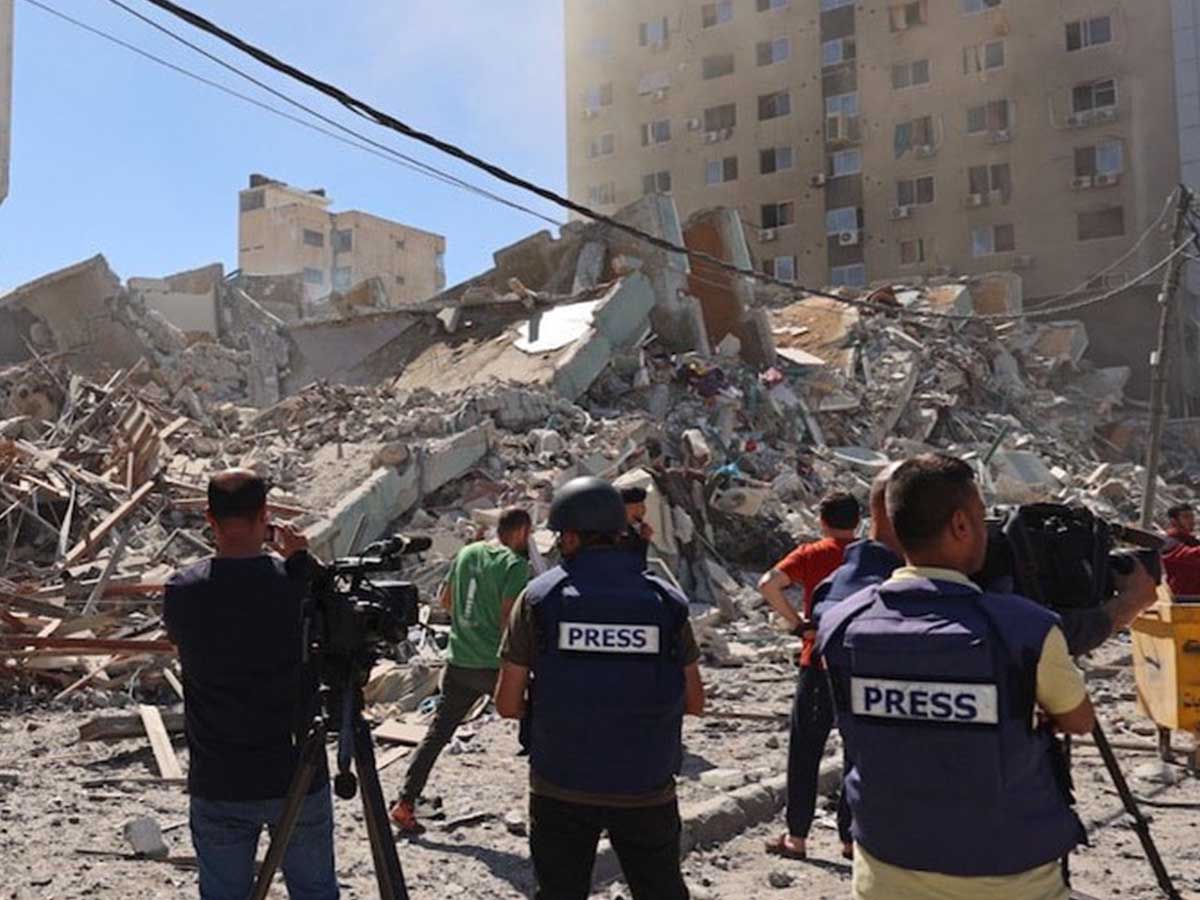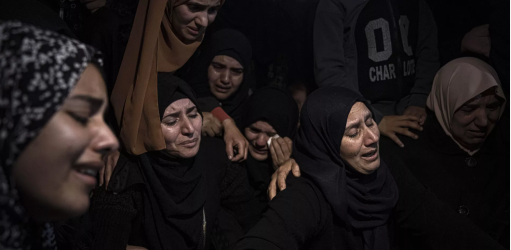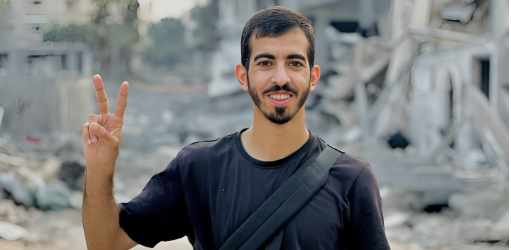This is a notification message.

The Intercept website revealed that Israel issued false warnings to journalists to evacuate at a site in Gaza, while it raided the location of other journalists, killing 3 of them.
The website confirmed that the investigation conducted by the “Arab Reporters for Investigative Journalism” organization, in coordination with the “Forbidden Stories” Foundation, revealed that in the early hours of the morning of October 10, an Israeli warning was issued to the Ghafari and Haji towers, according to witnesses, but the raid instead targeted a residential building.
It consists of 6 floors called Babel, located directly on the road between the two towers. As the Tower of Babel collapsed and turned into rubble, at least 9 people were killed, including 3 journalists who moved to the vicinity of the building to cover Haji Tower from a safe distance.
The towering Haji Tower houses local and international media offices, including Agence France-Presse. According to the investigation, the wave of people leaving the 12-story tower came after an Israeli military officer spoke on the phone to at least four people to order them to evacuate the tower, according to accounts from two direct recipients of the warnings, as well as a video clip of the call.
Although many Israeli attacks come without warning, the army sometimes issues warnings before bombing buildings.
Mansour Khalaf, owner of Babel Café, who witnessed the attack from the street, said: “The body parts of the journalists flew in the air due to the intensity of the bombing.” In a written statement, the Israeli army spokesman said: The army issued “a warning to the residents of the building and the area to evacuate.”
He added: "Any claim that the IDF led people to the strike area is baseless and absurd."
The statement said: The case is under investigation.
The investigation, which recounts minute-by-minute details of the airstrike - based on analysis of videos, audio recordings and photos from the attack and its aftermath - said that the attack on the Babel building was preceded by false warnings.
The investigation collected more than 25 interviews, including with family members of those killed and about 20 eyewitnesses to the raid. The findings of the study indicate that, according to eyewitnesses, a local resident received a phone call after one in the morning from a man who identified himself as an Israeli officer, and the caller said: Burj Hajji must be evacuated because it is about to be bombed.
Three people who heard the call confirmed to ARIJ and The Intercept that the officer identified the Haji Tower as a target, as one of the eyewitnesses heard the call via loudspeaker, while the other two heard it directly from the Israeli officer.
Late on the evening of October 9, eight journalists gathered at the Agence France-Presse office in Hajji Tower. Yahya Hassouna, the agency's videographer, was busy editing the footage when the building's guard arrived with breaking news: There appeared to be a call from the Israeli army to evacuate the building.
No one knew why Burj Hajji was targeted, and Hassouna said: “We were all in shock. What was the reason?” It was approaching 2 a.m.
when AFP journalist Adel Al-Zanoun called the head of the Jerusalem bureau, who said: “Do not waste a single minute and evacuate the place.” Inside AFP's office in Bordj Haji, employees gathered cameras, tripods, press jackets and helmets. Within a few minutes, they were able to exit the building.
“We know that when the Israeli army threatens a tower, it will be bombed, whether after 15 minutes, an hour or 30 minutes,” Hassouna said. “We learned that through our coverage of wars.”
At 2:25 in the morning, the air strike began - but the target was not Burj Haji. Instead, the strike hit the Babel Building, where reporters had gathered to get a better vantage point of Haji's tower.
ARIJ and The Intercept obtained three videos showing the strikes: one from a live feed from an AFP camera in Hajji, another from the offices of the Key Media Group on the 16th floor of the Ghafari Tower, and a third filmed by another journalist from the street.
An Agence France-Presse videographer told ARIJ and The Intercept website: Journalists' lives are at risk in wars. “They usually know where to stand and what to photograph,” he added. He added: After the October 10 attack, "we ended up fearing death every minute."

تستقبل نساء غزة يوم الأم...

تواصل الآلة الإعلامية الإسرائيلية حربها...